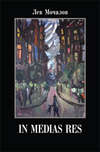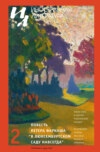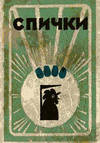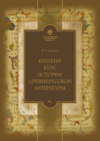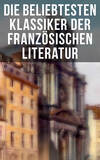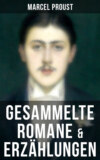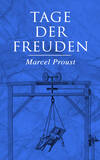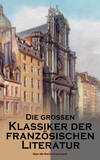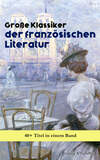Buch lesen: «In Search Of Lost Time. Volumes 1 to 7»
Marcel Proust
★
★
IN SEARCH OF LOST TIME (COMPLETE COLLECTION)
★
★
À la Recherche du temps perdu
Translated from the French by
C. K. Scott Moncrieff and
Stephen Hudson
SWANN’S WAY
Marcel Proust
IN SEARCH OF LOST TIME
★
SWANN’S WAY
★
À la Recherche du temps perdu:
Du côté de chez Swann
Translated from the French by
C. K. Scott Moncrieff
Overture
For a long time I used to go to bed early. Sometimes, when I had put out my candle, my eyes would close so quickly that I had not even time to say “I’m going to sleep.” And half an hour later the thought that it was time to go to sleep would awaken me; I would try to put away the book which, I imagined, was still in my hands, and to blow out the light; I had been thinking all the time, while I was asleep, of what I had just been reading, but my thoughts had run into a channel of their own, until I myself seemed actually to have become the subject of my book: a church, a quartet, the rivalry between François I and Charles V. This impression would persist for some moments after I was awake; it did not disturb my mind, but it lay like scales upon my eyes and prevented them from registering the fact that the candle was no longer burning. Then it would begin to seem unintelligible, as the thoughts of a former existence must be to a reincarnate spirit; the subject of my book would separate itself from me, leaving me free to choose whether I would form part of it or no; and at the same time my sight would return and I would be astonished to find myself in a state of darkness, pleasant and restful enough for the eyes, and even more, perhaps, for my mind, to which it appeared incomprehensible, without a cause, a matter dark indeed.
I would ask myself what o’clock it could be; I could hear the whistling of trains, which, now nearer and now farther off, punctuating the distance like the note of a bird in a forest, shewed me in perspective the deserted countryside through which a traveller would be hurrying towards the nearest station: the path that he followed being fixed for ever in his memory by the general excitement due to being in a strange place, to doing unusual things, to the last words of conversation, to farewells exchanged beneath an unfamiliar lamp which echoed still in his ears amid the silence of the night; and to the delightful prospect of being once again at home.
I would lay my cheeks gently against the comfortable cheeks of my pillow, as plump and blooming as the cheeks of babyhood. Or I would strike a match to look at my watch. Nearly midnight. The hour when an invalid, who has been obliged to start on a journey and to sleep in a strange hotel, awakens in a moment of illness and sees with glad relief a streak of daylight shewing under his bedroom door. Oh, joy of joys! it is morning. The servants will be about in a minute: he can ring, and some one will come to look after him. The thought of being made comfortable gives him strength to endure his pain. He is certain he heard footsteps: they come nearer, and then die away. The ray of light beneath his door is extinguished. It is midnight; some one has turned out the gas; the last servant has gone to bed, and he must lie all night in agony with no one to bring him any help.
I would fall asleep, and often I would be awake again for short snatches only, just long enough to hear the regular creaking of the wainscot, or to open my eyes to settle the shifting kaleidoscope of the darkness, to savour, in an instantaneous flash of perception, the sleep which lay heavy upon the furniture, the room, the whole surroundings of which I formed but an insignificant part and whose unconsciousness I should very soon return to share. Or, perhaps, while I was asleep I had returned without the least effort to an earlier stage in my life, now for ever outgrown; and had come under the thrall of one of my childish terrors, such as that old terror of my great-uncle’s pulling my curls, which was effectually dispelled on the day—the dawn of a new era to me—on which they were finally cropped from my head. I had forgotten that event during my sleep; I remembered it again immediately I had succeeded in making myself wake up to escape my great-uncle’s fingers; still, as a measure of precaution, I would bury the whole of my head in the pillow before returning to the world of dreams.
Sometimes, too, just as Eve was created from a rib of Adam, so a woman would come into existence while I was sleeping, conceived from some strain in the position of my limbs. Formed by the appetite that I was on the point of gratifying, she it was, I imagined, who offered me that gratification. My body, conscious that its own warmth was permeating hers, would strive to become one with her, and I would awake. The rest of humanity seemed very remote in comparison with this woman whose company I had left but a moment ago: my cheek was still warm with her kiss, my body bent beneath the weight of hers. If, as would sometimes happen, she had the appearance of some woman whom I had known in waking hours, I would abandon myself altogether to the sole quest of her, like people who set out on a journey to see with their own eyes some city that they have always longed to visit, and imagine that they can taste in reality what has charmed their fancy. And then, gradually, the memory of her would dissolve and vanish, until I had forgotten the maiden of my dream.
When a man is asleep, he has in a circle round him the chain of the hours, the sequence of the years, the order of the heavenly host. Instinctively, when he awakes, he looks to these, and in an instant reads off his own position on the earth’s surface and the amount of time that has elapsed during his slumbers; but this ordered procession is apt to grow confused, and to break its ranks. Suppose that, towards morning, after a night of insomnia, sleep descends upon him while he is reading, in quite a different position from that in which he normally goes to sleep, he has only to lift his arm to arrest the sun and turn it back in its course, and, at the moment of waking, he will have no idea of the time, but will conclude that he has just gone to bed. Or suppose that he gets drowsy in some even more abnormal position; sitting in an armchair, say, after dinner: then the world will fall topsy-turvy from its orbit, the magic chair will carry him at full speed through time and space, and when he opens his eyes again he will imagine that he went to sleep months earlier and in some far distant country. But for me it was enough if, in my own bed, my sleep was so heavy as completely to relax my consciousness; for then I lost all sense of the place in which I had gone to sleep, and when I awoke at midnight, not knowing where I was, I could not be sure at first who I was; I had only the most rudimentary sense of existence, such as may lurk and flicker in the depths of an animal’s consciousness; I was more destitute of human qualities than the cave-dweller; but then the memory, not yet of the place in which I was, but of various other places where I had lived, and might now very possibly be, would come like a rope let down from heaven to draw me up out of the abyss of not-being, from which I could never have escaped by myself: in a flash I would traverse and surmount centuries of civilisation, and out of a half-visualised succession of oil-lamps, followed by shirts with turned-down collars, would put together by degrees the component parts of my ego.
Perhaps the immobility of the things that surround us is forced upon them by our conviction that they are themselves, and not anything else, and by the immobility of our conceptions of them. For it always happened that when I awoke like this, and my mind struggled in an unsuccessful attempt to discover where I was, everything would be moving round me through the darkness: things, places, years. My body, still too heavy with sleep to move, would make an effort to construe the form which its tiredness took as an orientation of its various members, so as to induce from that where the wall lay and the furniture stood, to piece together and to give a name to the house in which it must be living. Its memory, the composite memory of its ribs, knees, and shoulder-blades offered it a whole series of rooms in which it had at one time or another slept; while the unseen walls kept changing, adapting themselves to the shape of each successive room that it remembered, whirling madly through the darkness. And even before my brain, lingering in consideration of when things had happened and of what they had looked like, had collected sufficient impressions to enable it to identify the room, it, my body, would recall from each room in succession what the bed was like, where the doors were, how daylight came in at the windows, whether there was a passage outside, what I had had in my mind when I went to sleep, and had found there when I awoke. The stiffened side underneath my body would, for instance, in trying to fix its position, imagine itself to be lying, face to the wall, in a big bed with a canopy; and at once I would say to myself, “Why, I must have gone to sleep after all, and Mamma never came to say good night!” for I was in the country with my grandfather, who died years ago; and my body, the side upon which I was lying, loyally preserving from the past an impression which my mind should never have forgotten, brought back before my eyes the glimmering flame of the night-light in its bowl of Bohemian glass, shaped like an urn and hung by chains from the ceiling, and the chimney-piece of Siena marble in my bedroom at Combray, in my great-aunt’s house, in those far distant days which, at the moment of waking, seemed present without being clearly denned, but would become plainer in a little while when I was properly awake.
Then would come up the memory of a fresh position; the wall slid away in another direction; I was in my room in Mme. de Saint-Loup’s house in the country; good heavens, it must be ten o’clock, they will have finished dinner! I must have overslept myself, in the little nap which I always take when I come in from my walk with Mme. de Saint-Loup, before dressing for the evening. For many years have now elapsed since the Combray days, when, coming in from the longest and latest walks, I would still be in time to see the reflection of the sunset glowing in the panes of my bedroom window. It is a very different kind of existence at Tansonville now with Mme. de Saint-Loup, and a different kind of pleasure that I now derive from taking walks only in the evenings, from visiting by moonlight the roads on which I used to play, as a child, in the sunshine; while the bedroom, in which I shall presently fall asleep instead of dressing for dinner, from afar off I can see it, as we return from our walk, with its lamp shining through the window, a solitary beacon in the night.
These shifting and confused gusts of memory never lasted for more than a few seconds; it often happened that, in my spell of uncertainty as to where I was, I did not distinguish the successive theories of which that uncertainty was composed any more than, when we watch a horse running, we isolate the successive positions of its body as they appear upon a bioscope. But I had seen first one and then another of the rooms in which I had slept during my life, and in the end I would revisit them all in the long course of my waking dream: rooms in winter, where on going to bed I would at once bury my head in a nest, built up out of the most diverse materials, the corner of my pillow, the top of my blankets, a piece of a shawl, the edge of my bed, and a copy of an evening paper, all of which things I would contrive, with the infinite patience of birds building their nests, to cement into one whole; rooms where, in a keen frost, I would feel the satisfaction of being shut in from the outer world (like the sea-swallow which builds at the end of a dark tunnel and is kept warm by the surrounding earth), and where, the fire keeping in all night, I would sleep wrapped up, as it were, in a great cloak of snug and savoury air, shot with the glow of the logs which would break out again in flame: in a sort of alcove without walls, a cave of warmth dug out of the heart of the room itself, a zone of heat whose boundaries were constantly shifting and altering in temperature as gusts of air ran across them to strike freshly upon my face, from the corners of the room, or from parts near the window or far from the fireplace which had therefore remained cold—or rooms in summer, where I would delight to feel myself a part of the warm evening, where the moonlight striking upon the half-opened shutters would throw down to the foot of my bed its enchanted ladder; where I would fall asleep, as it might be in the open air, like a titmouse which the breeze keeps poised in the focus of a sunbeam—or sometimes the Louis XVI room, so cheerful that I could never feel really unhappy, even on my first night in it: that room where the slender columns which lightly supported its ceiling would part, ever so gracefully, to indicate where the bed was and to keep it separate; sometimes again that little room with the high ceiling, hollowed in the form of a pyramid out of two separate storeys, and partly walled with mahogany, in which from the first moment my mind was drugged by the unfamiliar scent of flowering grasses, convinced of the hostility of the violet curtains and of the insolent indifference of a clock that chattered on at the top of its voice as though I were not there; while a strange and pitiless mirror with square feet, which stood across one corner of the room, cleared for itself a site I had not looked to find tenanted in the quiet surroundings of my normal field of vision: that room in which my mind, forcing itself for hours on end to leave its moorings, to elongate itself upwards so as to take on the exact shape of the room, and to reach to the summit of that monstrous funnel, had passed so many anxious nights while my body lay stretched out in bed, my eyes staring upwards, my ears straining, my nostrils sniffing uneasily, and my heart beating; until custom had changed the colour of the curtains, made the clock keep quiet, brought an expression of pity to the cruel, slanting face of the glass, disguised or even completely dispelled the scent of flowering grasses, and distinctly reduced the apparent loftiness of the ceiling. Custom! that skilful but unhurrying manager who begins by torturing the mind for weeks on end with her provisional arrangements; whom the mind, for all that, is fortunate in discovering, for without the help of custom it would never contrive, by its own efforts, to make any room seem habitable.
Certainly I was now well awake; my body had turned about for the last time and the good angel of certainty had made all the surrounding objects stand still, had set me down under my bedclothes, in my bedroom, and had fixed, approximately in their right places in the uncertain light, my chest of drawers, my writing-table, my fireplace, the window overlooking the street, and both the doors. But it was no good my knowing that I was not in any of those houses of which, in the stupid moment of waking, if I had not caught sight exactly, I could still believe in their possible presence; for memory was now set in motion; as a rule I did not attempt to go to sleep again at once, but used to spend the greater part of the night recalling our life in the old days at Combray with my great-aunt, at Balbec, Paris, Doncières, Venice, and the rest; remembering again all the places and people that I had known, what I had actually seen of them, and what others had told me.
At Combray, as every afternoon ended, long before the time when I should have to go up to bed, and to lie there, unsleeping, far from my mother and grandmother, my bedroom became the fixed point on which my melancholy and anxious thoughts were centred. Some one had had the happy idea of giving me, to distract me on evenings when I seemed abnormally wretched, a magic lantern, which used to be set on top of my lamp while we waited for dinner-time to come: in the manner of the master-builders and glass-painters of gothic days it substituted for the opaqueness of my walls an impalpable iridescence, supernatural phenomena of many colours, in which legends were depicted, as on a shifting and transitory window. But my sorrows were only increased, because this change of lighting destroyed, as nothing else could have done, the customary impression I had formed of my room, thanks to which the room itself, but for the torture of having to go to bed in it, had become quite endurable. For now I no longer recognised it, and I became uneasy, as though I were in a room in some hotel or furnished lodging, in a place where I had just arrived, by train, for the first time.
Riding at a jerky trot, Golo, his mind filled with an infamous design, issued from the little three-cornered forest which dyed dark-green the slope of a convenient hill, and advanced by leaps and bounds towards the castle of poor Geneviève de Brabant. This castle was cut off short by a curved line which was in fact the circumference of one of the transparent ovals in the slides which were pushed into position through a slot in the lantern. It was only the wing of a castle, and in front of it stretched a moor on which Geneviève stood, lost in contemplation, wearing a blue girdle. The castle and the moor were yellow, but I could tell their colour without waiting to see them, for before the slides made their appearance the old-gold sonorous name of Brabant had given me an unmistakable clue. Golo stopped for a moment and listened sadly to the little speech read aloud by my great-aunt, which he seemed perfectly to understand, for he modified his attitude with a docility not devoid of a degree of majesty, so as to conform to the indications given in the text; then he rode away at the same jerky trot. And nothing could arrest his slow progress. If the lantern were moved I could still distinguish Golo’s horse advancing across the window-curtains, swelling out with their curves and diving into their folds. The body of Golo himself, being of the same supernatural substance as his steed’s, overcame all material obstacles—everything that seemed to bar his way—by taking each as it might be a skeleton and embodying it in himself: the door-handle, for instance, over which, adapting itself at once, would float invincibly his red cloak or his pale face, never losing its nobility or its melancholy, never shewing any sign of trouble at such a transubstantiation.
And, indeed, I found plenty of charm in these bright projections, which seemed to have come straight out of a Merovingian past, and to shed around me the reflections of such ancient history. But I cannot express the discomfort I felt at such an intrusion of mystery and beauty into a room which I had succeeded in filling with my own personality until I thought no more of the room than of myself. The anaesthetic effect of custom being destroyed, I would begin to think and to feel very melancholy things. The door-handle of my room, which was different to me from all the other doorhandles in the world, inasmuch as it seemed to open of its own accord and without my having to turn it, so unconscious had its manipulation become; lo and behold, it was now an astral body for Golo. And as soon as the dinner-bell rang I would run down to the dining-room, where the big hanging lamp, ignorant of Golo and Bluebeard but well acquainted with my family and the dish of stewed beef, shed the same light as on every other evening; and I would fall into the arms of my mother, whom the misfortunes of Geneviève de Brabant had made all the dearer to me, just as the crimes of Golo had driven me to a more than ordinarily scrupulous examination of my own conscience.
But after dinner, alas, I was soon obliged to leave Mamma, who stayed talking with the others, in the garden if it was fine, or in the little parlour where everyone took shelter when it was wet. Everyone except my grandmother, who held that “It is a pity to shut oneself indoors in the country,” and used to carry on endless discussions with my father on the very wettest days, because he would send me up to my room with a book instead of letting me stay out of doors. “That is not the way to make him strong and active,” she would say sadly, “especially this little man, who needs all the strength and character that he can get.” My father would shrug his shoulders and study the barometer, for he took an interest in meteorology, while my mother, keeping very quiet so as not to disturb him, looked at him with tender respect, but not too hard, not wishing to penetrate the mysteries of his superior mind. But my grandmother, in all weathers, even when the rain was coming down in torrents and Françoise had rushed indoors with the precious wicker armchairs, so that they should not get soaked—you would see my grandmother pacing the deserted garden, lashed by the storm, pushing back her grey hair in disorder so that her brows might be more free to imbibe the life-giving draughts of wind and rain. She would say, “At last one can breathe!” and would run up and down the soaking paths—too straight and symmetrical for her liking, owing to the want of any feeling for nature in the new gardener, whom my father had been asking all morning if the weather were going to improve—with her keen, jerky little step regulated by the various effects wrought upon her soul by the intoxication of the storm, the force of hygiene, the stupidity of my education and of symmetry in gardens, rather than by any anxiety (for that was quite unknown to her) to save her plum-coloured skirt from the spots of mud under which it would gradually disappear to a depth which always provided her maid with a fresh problem and filled her with fresh despair.
When these walks of my grandmother’s took place after dinner there was one thing which never failed to bring her back to the house: that was if (at one of those points when the revolutions of her course brought her, moth-like, in sight of the lamp in the little parlour where the liqueurs were set out on the card-table) my great-aunt called out to her: “Bathilde! Come in and stop your husband from drinking brandy!” For, simply to tease her (she had brought so foreign a type of mind into my father’s family that everyone made a joke of it), my great-aunt used to make my grandfather, who was forbidden liqueurs, take just a few drops. My poor grandmother would come in and beg and implore her husband not to taste the brandy; and he would become annoyed and swallow his few drops all the same, and she would go out again sad and discouraged, but still smiling, for she was so humble and so sweet that her gentleness towards others, and her continual subordination of herself and of her own troubles, appeared on her face blended in a smile which, unlike those seen on the majority of human faces, had no trace in it of irony, save for herself, while for all of us kisses seemed to spring from her eyes, which could not look upon those she loved without yearning to bestow upon them passionate caresses. The torments inflicted on her by my great-aunt, the sight of my grandmother’s vain entreaties, of her in her weakness conquered before she began, but still making the futile endeavour to wean my grandfather from his liqueur-glass—all these were things of the sort to which, in later years, one can grow so well accustomed as to smile at them, to take the tormentor’s side with a happy determination which deludes one into the belief that it is not, really, tormenting; but in those days they filled me with such horror that I longed to strike my great-aunt. And yet, as soon as I heard her “Bathilde! Come in and stop your husband from drinking brandy!” in my cowardice I became at once a man, and did what all we grown men do when face to face with suffering and injustice; I preferred not to see them; I ran up to the top of the house to cry by myself in a little room beside the schoolroom and beneath the roof, which smelt of orris-root, and was scented also by a wild currant-bush which had climbed up between the stones of the outer wall and thrust a flowering branch in through the half-opened window. Intended for a more special and a baser use, this room, from which, in the daytime, I could see as far as the keep of Roussainville-le-Pin, was for a long time my place of refuge, doubtless because it was the only room whose door I was allowed to lock, whenever my occupation was such as required an inviolable solitude; reading or dreaming, secret tears or paroxysms of desire. Alas! I little knew that my own lack of will-power, my delicate health, and the consequent uncertainty as to my future weighed far more heavily on my grandmother’s mind than any little breach of the rules by her husband, during those endless perambulations, afternoon and evening, in which we used to see passing up and down, obliquely raised towards the heavens, her handsome face with its brown and wrinkled cheeks, which with age had acquired almost the purple hue of tilled fields in autumn, covered, if she were walking abroad, by a half-lifted veil, while upon them either the cold or some sad reflection invariably left the drying traces of an involuntary tear.
My sole consolation when I went upstairs for the night was that Mamma would come in and kiss me after I was in bed. But this good night lasted for so short a time: she went down again so soon that the moment in which I heard her climb the stairs, and then caught the sound of her garden dress of blue muslin, from which hung little tassels of plaited straw, rustling along the double-doored corridor, was for me a moment of the keenest sorrow. So much did I love that good night that I reached the stage of hoping that it would come as late as possible, so as to prolong the time of respite during which Mamma would not yet have appeared. Sometimes when, after kissing me, she opened the door to go, I longed to call her back, to say to her “Kiss me just once again,” but I knew that then she would at once look displeased, for the concession which she made to my wretchedness and agitation in coming up to me with this kiss of peace always annoyed my father, who thought such ceremonies absurd, and she would have liked to try to induce me to outgrow the need, the custom of having her there at all, which was a very different thing from letting the custom grow up of my asking her for an additional kiss when she was already crossing the threshold. And to see her look displeased destroyed all the sense of tranquillity she had brought me a moment before, when she bent her loving face down over my bed, and held it out to me like a Host, for an act of Communion in which my lips might drink deeply the sense of her real presence, and with it the power to sleep. But those evenings on which Mamma stayed so short a time in my room were sweet indeed compared to those on which we had guests to dinner, and therefore she did not come at all. Our ‘guests’ were practically limited to M. Swann, who, apart from a few passing strangers, was almost the only person who ever came to the house at Combray, sometimes to a neighbourly dinner (but less frequently since his unfortunate marriage, as my family did not care to receive his wife) and sometimes after dinner, uninvited. On those evenings when, as we sat in front of the house beneath the big chestnut-tree and round the iron table, we heard, from the far end of the garden, not the large and noisy rattle which heralded and deafened as he approached with its ferruginous, interminable, frozen sound any member of the household who had put it out of action by coming in ‘without ringing,’ but the double peal—timid, oval, gilded—of the visitors’ bell, everyone would at once exclaim “A visitor! Who in the world can it be?” but they knew quite well that it could only be M. Swann. My great-aunt, speaking in a loud voice, to set an example, in a tone which she endeavoured to make sound natural, would tell the others not to whisper so; that nothing could be more unpleasant for a stranger coming in, who would be led to think that people were saying things about him which he was not meant to hear; and then my grandmother would be sent out as a scout, always happy to find an excuse for an additional turn in the garden, which she would utilise to remove surreptitiously, as she passed, the stakes of a rose-tree or two, so as to make the roses look a little more natural, as a mother might run her hand through her boy’s hair, after the barber had smoothed it down, to make it stick out properly round his head.
And there we would all stay, hanging on the words which would fall from my grandmother’s lips when she brought us back her report of the enemy, as though there had been some uncertainty among a vast number of possible invaders, and then, soon after, my grandfather would say: “I can hear Swann’s voice.” And, indeed, one could tell him only by his voice, for it was difficult to make out his face with its arched nose and green eyes, under a high forehead fringed with fair, almost red hair, dressed in the Bressant style, because in the garden we used as little light as possible, so as not to attract mosquitoes: and I would slip away as though not going for anything in particular, to tell them to bring out the syrups; for my grandmother made a great point, thinking it ‘nicer’ of their not being allowed to seem anything out of the ordinary, which we kept for visitors only. Although a far younger man, M. Swann was very much attached to my grandfather, who had been an intimate friend, in his time, of Swann’s father, an excellent but an eccentric man in whom the least little thing would, it seemed, often check the flow of his spirits and divert the current of his thoughts. Several times in the course of a year I would hear my grandfather tell at table the story, which never varied, of the behaviour of M. Swann the elder upon the death of his wife, by whose bedside he had watched day and night. My grandfather, who had not seen him for a long time, hastened to join him at the Swanns’ family property on the outskirts of Combray, and managed to entice him for a moment, weeping profusely, out of the death-chamber, so that he should not be present when the body was laid in its coffin. They took a turn or two in the park, where there was a little sunshine. Suddenly M. Swann seized my grandfather by the arm and cried, “Oh, my dear old friend, how fortunate we are to be walking here together on such a charming day! Don’t you see how pretty they are, all these trees—my hawthorns, and my new pond, on which you have never congratulated me? You look as glum as a night-cap. Don’t you feel this little breeze? Ah! whatever you may say, it’s good to be alive all the same, my dear Amédée!” And then, abruptly, the memory of his dead wife returned to him, and probably thinking it too complicated to inquire into how, at such a time, he could have allowed himself to be carried away by an impulse of happiness, he confined himself to a gesture which he habitually employed whenever any perplexing question came into his mind: that is, he passed his hand across his forehead, dried his eyes, and wiped his glasses. And he could never be consoled for the loss of his wife, but used to say to my grandfather, during the two years for which he survived her, “It’s a funny thing, now; I very often think of my poor wife, but I cannot think of her very much at any one time.” “Often, but a little at a time, like poor old Swann,” became one of my grandfather’s favourite phrases, which he would apply to all kinds of things. And I should have assumed that this father of Swann’s had been a monster if my grandfather, whom I regarded as a better judge than myself, and whose word was my law and often led me in the long run to pardon offences which I should have been inclined to condemn, had not gone on to exclaim, “But, after all, he had a heart of gold.”


